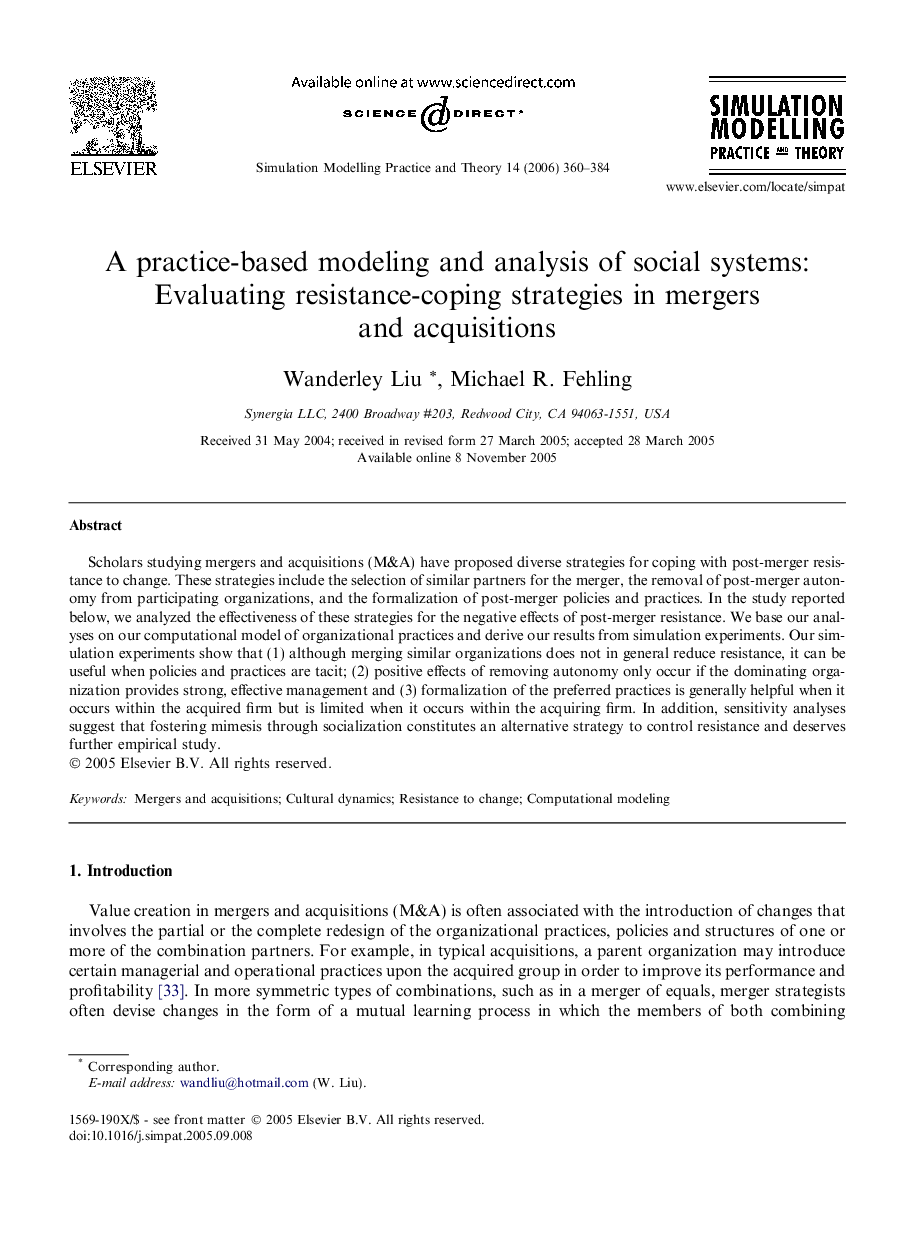| Article ID | Journal | Published Year | Pages | File Type |
|---|---|---|---|---|
| 493814 | Simulation Modelling Practice and Theory | 2006 | 25 Pages |
Scholars studying mergers and acquisitions (M&A) have proposed diverse strategies for coping with post-merger resistance to change. These strategies include the selection of similar partners for the merger, the removal of post-merger autonomy from participating organizations, and the formalization of post-merger policies and practices. In the study reported below, we analyzed the effectiveness of these strategies for the negative effects of post-merger resistance. We base our analyses on our computational model of organizational practices and derive our results from simulation experiments. Our simulation experiments show that (1) although merging similar organizations does not in general reduce resistance, it can be useful when policies and practices are tacit; (2) positive effects of removing autonomy only occur if the dominating organization provides strong, effective management and (3) formalization of the preferred practices is generally helpful when it occurs within the acquired firm but is limited when it occurs within the acquiring firm. In addition, sensitivity analyses suggest that fostering mimesis through socialization constitutes an alternative strategy to control resistance and deserves further empirical study.
